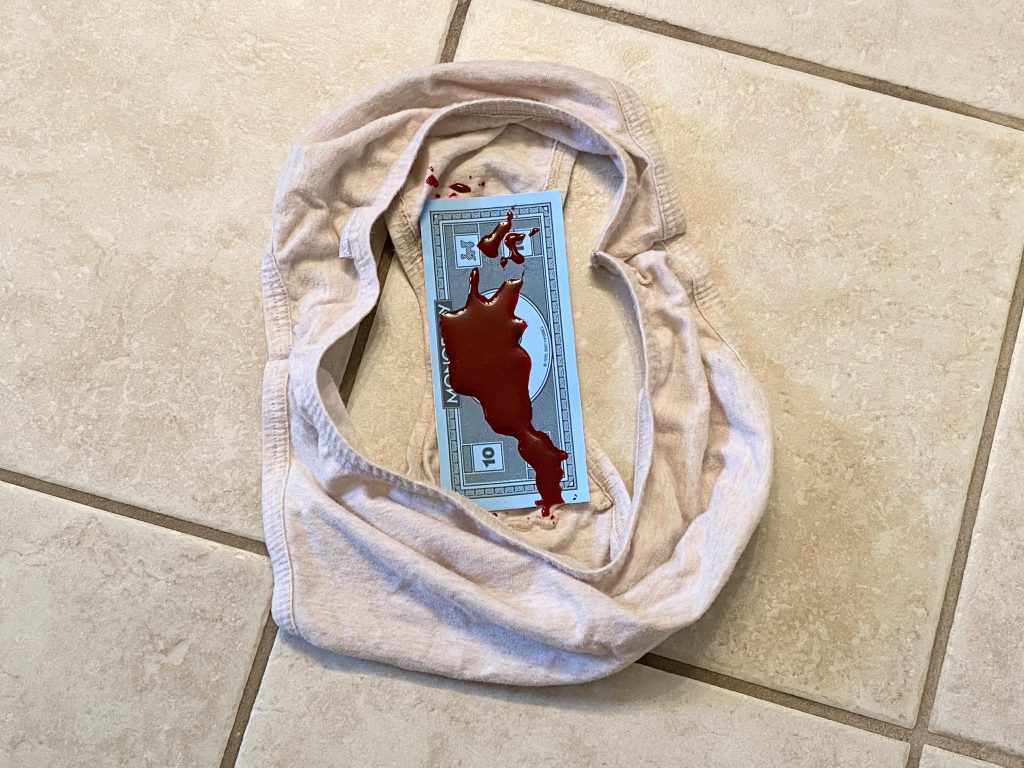By: Bethel Alemaio (she/her)

Many Canadians struggle to gain equitable access to menstrual products. Plan International Canada’s Menstruation in Canada Views and Realities reveals the consequences of unaffordable and inaccessible menstrual products among youth and adults. One in five (22%) of the respondents ration their products, and this number rises to 33% for those with household incomes less than $50,000 (Plan International Canada 2022). A recent report focusing on menstrual needs in northern communities noted that 74% of Indigenous respondents in remote communities and 55% of Indigenous respondents in non-remote communities “sometimes” or “often” have issues accessing menstrual products (Lane 2024). Resulting from this, in recent years, Indigenous leaders nationally have fought for easier access to period products (Toory 2022).
Sol Mamakwa, MPP of northern Ontario, is one such person. In 2021, after Shoppers Drug Mart announced its plan to donate menstrual products to public schools, 120 federally funded First Nations schools were excluded from this distribution. Mamakwa was outspoken about the province’s discriminatory practices, which violated Jordan Principle. Within this policy, it is mandated that the needs of First Nations Children to access “products, services, and supports” (Indigenous Services Canada, 2024) requires the collaboration of both the federal and provincial governments in a timely manner. Mamakwa further indicates his disappointment as the products were a private donation and did not require the spending of provincial funding.
Moon Time Connections, a national organization dedicated to providing menstrual products to Indigenous peoples throughout Turtle Island, shares Mamakwa’s concern. Working with the Ontario chapter of Moon Time Connections, Veronica Brown recognizes the government’s actions as a “colonial barrier” (McGillivray 2021) to equitable access to period products.
Nichole White created Moon Time Connections because she discovered Indigenous students learning in remote and rural areas were missing school due to a lack of access to menstrual products. The first chapter was created in Saskatchewan, previously known as Moon Sisters, and the organization expanded to Ontario, Manitoba, and British Columbia. They actively work toward period equity in collaboration with 120 northern Indigenous Communities from coast to coast.
References
Lane, Heather. 2024. “An Assessment of Menstrual-Related Needs in Northern Communities.” Moon Time Connections. True North Aid. https://truenorthaid.ca/wp-content/uploads/2024/03/An-Assessment-of-Menstrual-Related-Needs-in-Northern-Communities-FINAL.pdf.
McGillivray, Kate. 2021. “MPP Calls out Province’s Free Menstrual Products Plan for Not Including First Nations Schools.” CBC News, October 23, 2021. https://www.cbc.ca/news/canada/toronto/mpp-calls-out-province-s-free-menstrual-products-plan-for-not-including-first-nations-schools-1.6219813.
Plan International Canada. 2022. “Menstruation in Canada – Views and Realities.” Plan International. https://www.multivu.com/players/English/9052951-menstrual-health-day-2022/docs/ViewsandRealities_1653434611799-556425632.pdf.
Toory, Leisha. 2022. “Menstrual Health Is a Public Health Crisis for Indigenous Youth.” Toronto Star, October 13, 2022. https://www.thestar.com/opinion/contributors/menstrual-health-is-a-public-health-crisis-for-indigenous-youth/article_d8f3098b-1a61-52b7-a9c1-a8bdb9dc926d.html.
May 28th is menstrual hygiene day, and this year, the theme is “Together for a #PeriodFriendlyWorld.” While this observance was originally framed as menstrual hygiene – we follow the lead of the World Health Organization, who calls for menstrual health to be recognized, framed, and addressed as a human rights issue, not a hygiene issue. Framing menstruation as such is a reflection of the taboo and stigma around periods. The labelling of period supplies as “feminine hygiene products” is incorrect since as Dr. Jen Gunther explains “needing them is not a sign of being feminine – it’s a sign that you need something to catch blood – and they’re not hygiene products because menstruating is not unhygienic.”
In 2023-2024, the Centre for Human Rights Research at the University of Manitoba has worked on the “Period Poverty & Equity, On Campus and Beyond” project to assess access to period supplies for the University of Manitoba community and to work towards menstrual equity, on campus and in the community. This series of essays is part of the Period Poverty & Equity, On Campus and Beyond project and aims to explore issues of menstrual justice that are often overlooked.



